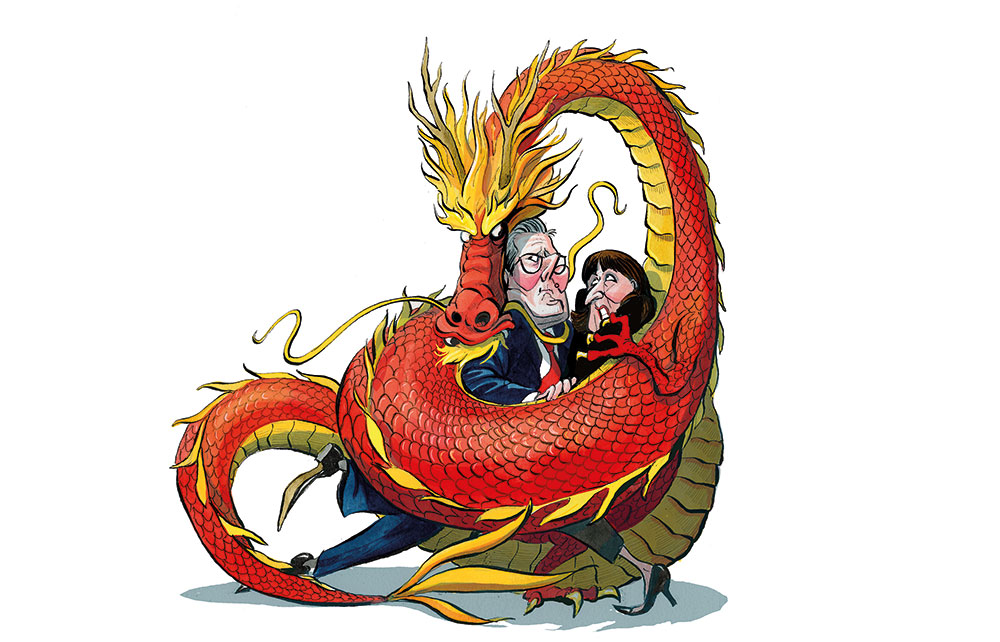It used to be said that parties were Eurosceptic in opposition but Europhile in government. The same might be true of China too. Under Keir Starmer’s leadership, Labour initially adopted a Sinosceptic stance, strongly condemning the Hong Kong crackdown and promising to recognise China’s treatment of the Uyghurs as genocide.
Yet in office, they have abandoned such postures and instead sent various ministers out East. The latest to go and tout for trade is Rachel Reeves, in her never-ending quest for growth. For the first time in five years, the Chancellor will hold an Economic and Financial Dialogue between China and the UK tomorrow in Beijing. Accompanied by Andrew Bailey, the Governor of the Bank of England, Reeves and a dozen financial services chiefs will then visit Shanghai this Sunday.
There are two problems with Reeves’s China jaunt. The first is why talks are resuming now, ahead of the government’s much-vaunted ‘China audit’. The second is how much of an economic yield we can really expect, given how little benefit Germany – which spent a decade pursing business-über-alles with Beijing – seems to have gained. Just yesterday, the German federal prosecutor’s office charged three people suspected of supplying technological information to Chinese intelligence.
The fact that this trip is still going ahead shows the primacy of economic growth in government thinking. The Foreign minister Catherine West – a onetime Sinosceptic – set out the thought process starkly in the Commons on Tuesday. ‘While we have clear national security concerns,’ she said, ‘we have to balance those concerns with being an outwardly facing and globally trading nation.’
This theme is a running theme of Keir Starmer’s administration. Both the Prime Minister and the Foreign Secretary have already met with their Chinese counterparts. The pair opted for Lord Mandelson – the only Labour peer to vote against recognising the Uyghur genocide – as their choice for Washington ambassador. They were both willing to hand the Chagos Islands over to a markedly pro-Beijing administration in Mauritius while Chinese Shein fashion firm is set to list on the London Stock Exchange.
These trends have led some to muse about the ‘strange death of Labour Sinoscepticism.’ Yet there are signs that on the backbenches, not all the Labour party share the Treasury’s enthusiasm for closer ties to China. Two new boys – Blair McDougall and Phil Brickell – have broken cover today to warn that Beijing ‘is a clear and urgent threat to our national security, our economic interests, and our values in the world’. Rosie Wrighting, another MP from the 2024 intake, gave an impressive grilling to Shein representatives on their supply chains at the Business Select Committee on Tuesday.
Reeves is a Labour politician who knows her history well. Some in Westminster liken her trip – conducted while the bond markets are in turmoil – to Denis Healey’s infamous 1976 Heathrow Airport U-turn after he found out the pound was plunging. But perhaps the more pertinent comparison ought to be Philip Snowden, the Labour Chancellor of the 1930s who valued fiscal prudence above all else.
The danger for Labour is that in prioritising the fashionable shibboleths of Treasury orthodoxy, security concerns may come back to haunt them – just as they did those statesmen of the ‘locust years’ some 80 years ago







Comments